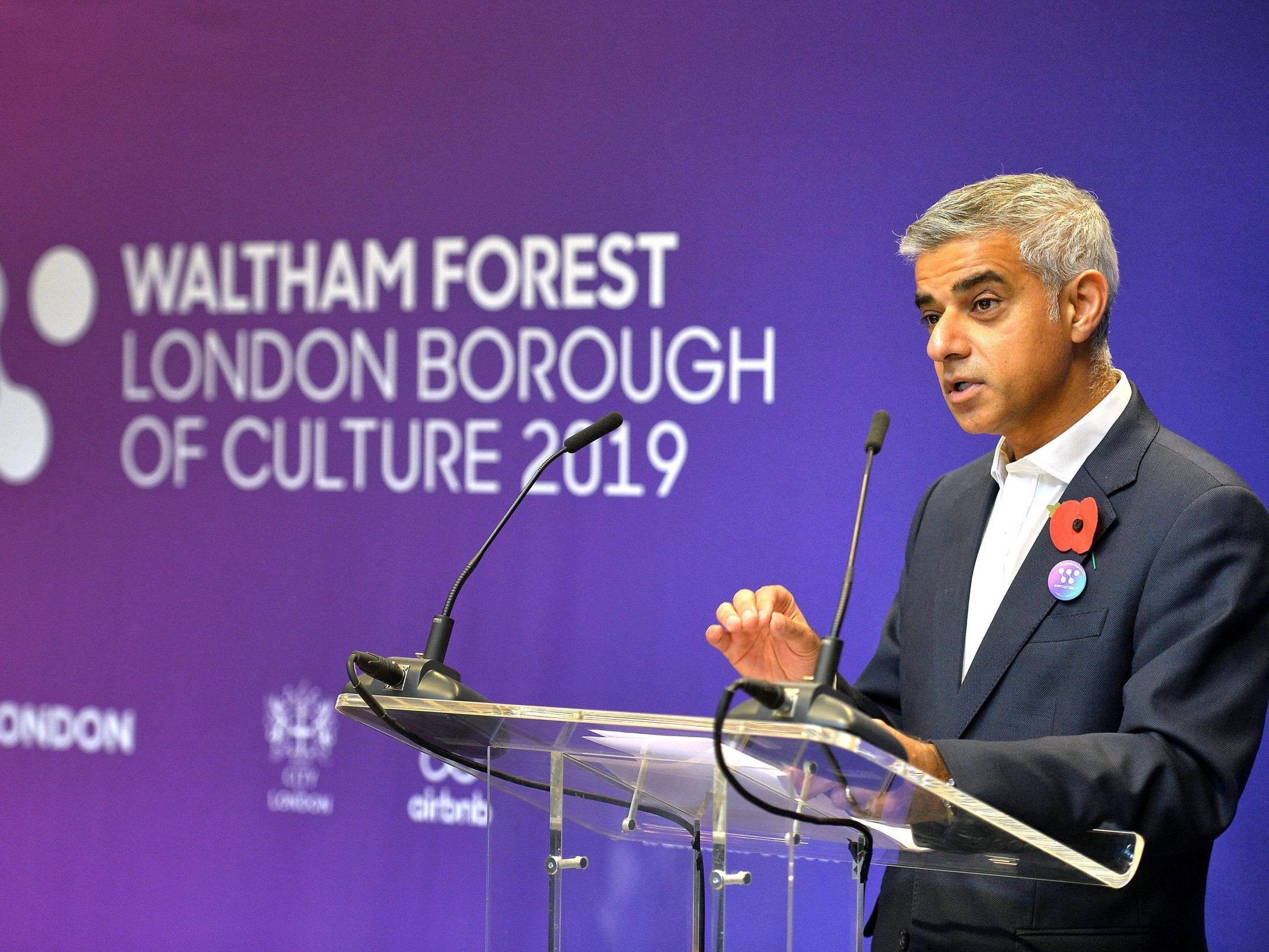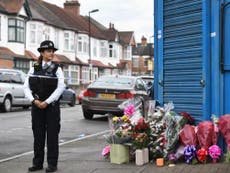A public health model is required to deal with knife crime – lives depend on it
There will never be sufficient police officers, even with draconian powers of stop and search, to deal with every blade on every street. Sadiq Khan is right to focus on prevention rather than cure

At the time of writing, there have been five fatal stabbings in six days in London alone. One pressure group put the national death toll at 250 for 2018 so far; more than 2016 and 2015. There is no doubt that the phenomenon is growing and, while predominantly a problem in London, stabbings and violent assaults are hardly confined to the capital.
Indeed, it was not so long ago that Glasgow had a similarly grievous problem with knife crime. Over a period of years, however, it adopted policies and policing that helped contain and then push back the tide. No wonder its example has caught the eye of the mayor of London, Sadiq Khan, and the commissioner of the Metropolitan Police, Cressida Dick. Leaders of other towns and cities should also take notice of one of the few examples of a criminal phenomenon actually being defeated, if not eradicated.
The key is to treat knife crime, in part, as a public health issue – prevention rather than cure. This is now what Mr Khan talks about, and to some public ridicule. When he tells his community, and the wider nation, that it may take a decade to sort the problem out, he is scorned. And yet he is only telling the truth; it will take a good deal of time, and it is an intractable issue that will require patient action and resources.
Those who see the issue purely in terms of law and order need to understand the limits of what the state can do. There will never be sufficient police officers, even with draconian powers of stop and search, to deal with every blade on every street. The aim is to stop young people – some of primary school age – from carrying a blade around in the first place.
The public health approach means that the sort of children who end up in gangs fighting turf wars or trafficking drugs are identified and protected at an early age. Some young people are more vulnerable than others, and no one understands this better than the gangsters who recruit them, arm them, pay them and train them. For once they are embedded in such a network, their chances of escaping it alive become much smaller, and of course they are a lethal threat to anyone who gets in their way.
So, in London and elsewhere, teachers and social workers need to watch pupils who are expelled from school, are going through family breakdown, being severely bullied, being targeted by gangs or threatened with violence themselves. Not every young person who ends up stabbing someone else to death comes from a troubled home, and nor is it any kind of alibi. The fact is, however, that a high proportion do have an unpromising start in life, and they and the rest of society suffer the consequences. It is possible to turn lives around, and is always worth the effort. That is one of the lessons of the Glasgow experience.
Another is that the public health approach is in addition to, and not a substitute for, efficient and tough policing. London’s citizens have a right to expect it, and it is the only way the phenomenon can be tackled once a young person moves out of education or the care system. There are at least three aspects to this. First, the police should make use of stop and search powers in knife crime hotspots – provided that there is a clear operational need and, most crucially, the officers wear the body cams that are now being issued to them. Under such circumstances, and with adequate recording, incidents of any inherent or unconscious racial bias can be detected and, if necessary, corrected.
Second, the police need to concentrate, as they have been doing, on how gang culture is evolving. Where once it was the ludicrous carving up of estates and territories by postcode, with simple territorial disputes escalating into slaughter, the gangs now have a more businesslike demeanour – literally. For they are mutating into mini mafia-like organisations involved, at the moment, in the selling and transportation of drugs. As has been well publicised, this has extended out from their local “manors” in London and other big cities towards towns and villages, via the so-called county lines strategy. Sinister, yes, but there is nothing mysterious about this; like all businesses they are seeking out new, more lucrative and less competitive environments to peddle their merchandise. Gangs are now more about profit than simple pride, and there can be hundreds in any given London borough. The recruitment to them may be addressed by the public health approach, but gathering intelligence, organising surveillance and constructing cases so that gang leaders can be put behind bars takes a different approach.
Third, there is a case for exploring what might happen if the drugs trade was taken out of their hands, through legalisation. Would that mean the end of gang warfare? Or would gangs simply move on and adapt to some other form of crime? What will happen now that Canada has legalised cannabis?
The gangs could easily move towards extortion or robbery, fraud, people trafficking and the sex trade, or simply shift from cannabis to harder drugs. Are they not always going to gravitate towards violence and crime simply because it is the only way of life they understand? If so, then the gangs will not be defeated, but merely displaced into an alternative form of parasitism.
Mr Khan should be thanked for his candour. Today there are rather too many politicians, and very high profile ones, who offer simplistic populist solutions to deep-seated problems that have been growing for many years. What is needed is a smart approach to violent crime – guns as well as knives. It would take longer than a decade, and it will certainly require the public to fund the police properly so they can make our streets safer. It is just as well that we understand that, and don’t have any false hopes raised.


Join our commenting forum
Join thought-provoking conversations, follow other Independent readers and see their replies